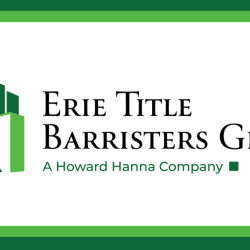Suppose you’ve ever made an impulsive purchase. In that case, you’re likely familiar with the feeling of being completely fixated on something you feel you must have. When it’s something minor, like a coat you can’t reasonably afford, the consequences of overspending may be minor. However, if it’s a home, that impulse could result in a significant financial commitment to a property that doesn’t meet your needs. That’s why it’s essential to be aware of psychological traps that can influence your decisions, often making them less logical than they should be.
These psychological pitfalls often lead to buyer’s remorse, which is surprisingly common among homebuyers. A 2022 survey by Zillow® revealed that 75% of homebuyers who purchased a home in the prior two years had at least one regret. These regrets ranged from underestimating the upkeep of a yard to overlooking the location of bedrooms.
Here are some common psychological traps and ways to avoid them.
Overconfidence
You find a house online that seems perfect, and by the time you tour it in person, you’ve already convinced yourself it’s “the one.“ Minor issues like a crack in the foundation or watermarks on the ceiling suddenly seem fixable, and you keep telling yourself, “We can handle that.“ If this sounds familiar, you may have fallen into the trap of overconfidence, where you minimize potential problems in favor of your emotional attachment to the home.
How to avoid this trap: Hire a skilled inspector to uncover significant issues and ask your agent to consult with experts on repair costs before committing.
Neglecting Your Future Self
When searching for a home, you might be focused on your current lifestyle without considering how your needs could change. For instance, you might buy a home perfect for a couple without kids without factoring in future plans that could require more space.
How to avoid this trap: Take the time to consider what your life might look like in five or ten years. If children, pets, or a live-in relative are part of your plans, you should now account for those needs in your home search.
Failing to Negotiate
When sellers list their homes, the price is often set based on their expectations. As a buyer, you might use that price as a reference point and hesitate to negotiate, especially in a competitive market. However, there may be room for negotiation depending on the time of year or the local market conditions.
How to avoid this trap: Rely on your agent’s expertise to understand market trends and consider negotiating for a lower price or other benefits, such as a rent-back agreement for the seller.
Acting on Impulse
In a competitive housing market, acting fast when you find a home you like is essential. However, acting fast doesn’t mean acting impulsively. Making a rushed decision without fully considering your budget and priorities could lead to buyer’s remorse.
How to avoid this trap: Prepare by getting pre-approved for a mortgage, setting a clear budget and identifying must-have features in a home.
Confirmation Bias
Confirmation bias occurs when you focus on information that supports your beliefs while ignoring contradictory evidence. For example, suppose you expect mortgage rates to drop significantly and delay buying a home based on that belief. In that case, you might find yourself facing even higher rates later.
How to avoid this trap: Stay informed about market trends and remain open to new information, even if it challenges your assumptions. Trust your agent to provide objective insights.
Getting Stuck in the Past
You might have fond memories of the type of home you grew up in, and those feelings can prevent you from considering other styles or layouts. If you become fixated on finding a house just like the one from your childhood, you could miss out on better options.
How to avoid this trap: Focus on how a home makes you feel and whether it suits your current needs rather than trying to replicate past experiences. Sometimes, small design choices can evoke the nostalgia you seek.
Fixating on One Feature
It’s easy to get attached to one standout feature, like an outdoor kitchen or large yard, and overlook other important aspects of a home. You might convince yourself that a yard requiring lots of maintenance won’t be a big deal, only to regret it later when you spend every weekend mowing the lawn.
How to avoid this trap: Before house hunting, make a comprehensive list of your priorities and ensure you consider the overall functionality of the home, not just one appealing feature.
Sunk Cost Fallacy
After investing time and money into finding a home, you might feel compelled to move forward, even if you discover significant flaws later. You may think you won’t find anything better after all the effort.
How to avoid this trap: Take a step back and think long-term. If the home’s issues are likely to cause problems in the future, it might be better to walk away and keep looking.
The Emotional and Logical Balance of Home Buying
Buying a home often involves balancing your emotional desires with rational decision-making. By setting clear boundaries and seeking reliable information, you can make the process easier and avoid falling into common psychological traps. Ultimately, you’re the best judge of what’s right for you, so trust your instincts after doing the necessary research and preparation.
Helpful Resources:
- Rent vs. Own Calculator: Determine whether it’s better to continue renting or purchase a home.
- Affordability Calculator: Understand what kind of home fits within your budget.
- Mortgage Calculator: Calculate monthly payments for homes you’re considering.
Considering these strategies, you are better equipped to make sound decisions and find a home that meets your needs.










